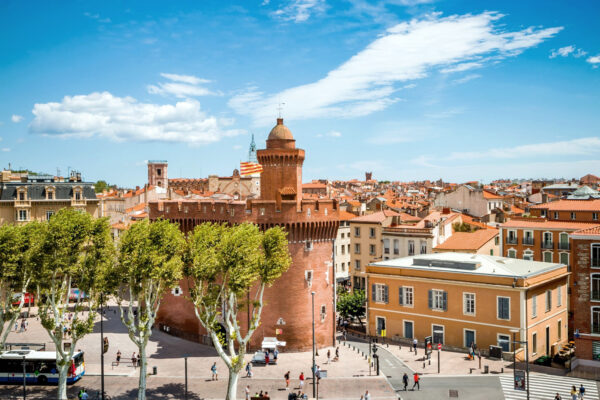
Catalonia’s independence referendum has aroused separatist sentiment north of the border, where a Catalan-speaking minority has long been content to live under French rule.
Northern Catalonia, or Roussillon, has been French since 1659.
Despite the presence of a small but vocal group of Catalan nationalists and a political party, the Unitat Catalana (UC), most of the region’s inhabitants have no desire to break away.
But recent events — not just those in Spain — have given French Catalans reason to question the status quo.
Separate identities
French Catalans are proud of their identity but typically separate the cultural from the political.
The region’s integration into France in 1659 isn’t remembered in the way Catalonia’s defeat at the hands of the Spanish in 1714 is commemorated every year south of the border.
The French state did a better job of nation-building following the Revolution than did its Spanish counterparts.
As result, the French Catalans have developed their own “Northern Catalan” identity.
Occitan threat
However, it can be argued that they now feel themselves squeezed out by another minority: the Occitans.
It’s probably too soon to tell, but the new geographical situation in France could politicize Catalan identity.
Last year, the country carried out an administrative overhaul that reduced the number of regions from 28 to eighteen. Languedoc-Roussillon was merged with Midi-Pyrénées, the heart of historical Occitania, and the new mega-region was named Occitanie. The capital was put in Toulouse, diminishing the status of the former capital of Languedoc-Roussilon, Perpignan — the heart of French Catalonia. The Catalans of Roussillon now constitute only a tenth of the region’s population.
This has led to fears that Occitan culture and language may receive preferential treatment over Catalan.
While Occitanie was ironically chosen to encompass unity as opposed to the “duality” of the former Languedoc-Roussillon, the new name can hardly be considered neutral. Occitan nationalists have for decades imagined an independent Occitania consisting of most of the southern third of France, with the exception of its Basque- and Catalan-speaking parts.
The UC and other Northern Catalan nationalists resisted the name and suggested alternatives: Occitanie-Pays Catalan or Pyrénées-Méditérranée.
They were overruled — and that has given them a cause.
Sylvia Andolfo of Perpignan told The New York Times, “A name gives identity, so this reform has made us a lot more aware of who we really are, especially since we’re being told that our culture will be buried under a name that has never been ours.”
Spanish example
The determination of Spain’s Catalans to hold an independence referendum despite objections from the central government may yet inspire their compatriots in France to become politically active.
The UC has already drafted a statute that would give the region more autonomy. It is consulting with Carles Puigdemont, the deposed Catalan leader, and planning a conference in Perpignan next year to discuss options for home rule.
While Spain is doing what it can to prevent the Catalans from breaking away, though, France is even less likely to tolerate separatist aspirations. The centralizing instinct is even stronger in Paris than it is in Madrid. The recent administrative shakeup can be viewed as an attempt to consolidate direct rule and dilute regional identities.
The Catalans del Nord may need to rethink the timeliness of their actions.
